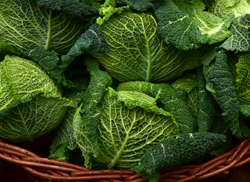
Exports of fresh horticultural products were worth an estimated Ksh153.7 billion in 2018, an increase of 33.3 percent compared to 2017.
Horticulture has, sometimes, been mistaken for market gardening. While both involve some form of farm work, the crucial difference is in scale. Market gardening refers to small-scale production, on under one acre, of fruits, flowers and vegetables for sale directly to consumers and restaurants.
Horticulture, on the other hand, refers to intensive and large-scale cultivation of fruits, flowers and vegetables for sale. Horticultural crops include fruits such as avocados and mangoes, and vegetables such as French beans, cowpeas, baby corn, tomatoes among others.
The produce is grown both for local consumption and for export. The horticultural sub-sector is Kenya’s third largest foreign exchange earner country generating approximately KSh100 billion annually. The country’s temperate and tropical climate conditions make her a haven for horticultural production and development. Over two million people are employed in the horticultural sector and although there are large-scale players, an estimated 80 percent of producers are small-scale. The European Union is the major market for Kenyan horticultural exports, which include French beans, cauliflower, cabbages, mangoes, pineapples and many varieties of cut flowers.
Nimrod’s story…
For Nimrod Mengich, a 29-year-old farmer from Uasin Gishu, cabbage is king. He has taken to growing it with a passion, after realising its potential, one lost on many people in the region. He has grown 37,000 heads of the Quisor F1 variety on his two acres. When he harvests them in early March, Kibet hopes to sell each at Sh30, fetching over Sh1 million after spending Sh50,000 on seeds, fertilisers, labour.
“I started out in retail business but quit after confrontations with my customers,” he said.
In 2008, he decided to try his hand at horticulture and has never looked back. With an initial capital of Sh290,000, which he borrowed from the Youth Enterprise Fund, Mr Mengich started farming on a quarter acre in Kipsenende Village on the outskirts of Eldoret Town. Part of the money went into buying an extra half an acre. The farmer, who started by growing baby corn, snow peas, sugar snaps, French beans and carrots, says he chose horticulture because the crops mature fast and can be grown up to four times a year.
“Baby corn takes 65 days to mature, snow peas, 55 days, French beans, 45 days, and Quisor cabbages, 75 days,” he said.
“There are many problems in the cereals sector and to get any tangible returns, one should be a large-scale farmer,” he added. Drip irrigation enables the farmer to utilise the farm throughout the year and rotate the crop depending on market cycle.
I had carrots last time and after this harvest, I will plant potatoes. I keep changing the crops depending on market demand.
He has been growing vegetables mostly for export, having been contracted by a private firm. However, he has since registered his own company, White Highlands Horticulture.
“The only ones that I sell locally are those which may not meet export standards, but are good for the local market. Even a tiny black spot on a produce is an issue in the export market,” he said. He bought the cabbage seeds at Sh10,000 and fertiliser for a similar amount. Tillage cost him Sh5,000, pesticides, Sh6,000 and labour, Sh18,000 for the 75 days the crop will be on the farm, from planting to harvesting. But that figure does not include a drip irrigation system purchased and installed earlier at Sh350,000. The irrigation system is a fixed asset -he bought when he ventured into horticulture.
Despite the interest already shown by a local university in the crop, his first consignment, which he exported under his company, went to Seychelles.
The high grade farm produce was exported through Eldoret International Airport. Government agencies like the Export Promotion Council (EPC) and Horticultural Crops Development Authority (HCDA) have been instrumental in identifying the market for horticultural farmers. Mengich says he has had to deal with several challenges, including animals trespassing on the farm and destroying his crop.
“This was before I fenced off the farm and it was terrible if they were goats, since the crop could not sprout again. Goats eat all manner of plants, some of which are poisonous and the toxin remains in the saliva which kills the plants,” he added. Other challenges include pests, diseases and ravages of bad weather such as snow, excess rainfall, hailstones, drought and strong winds.
Transport to foreign markets is also a headache because some firms at the airport demand huge consignments. He says it is not easy at times to marshal between 40 and 100 tonnes in a single harvest.
